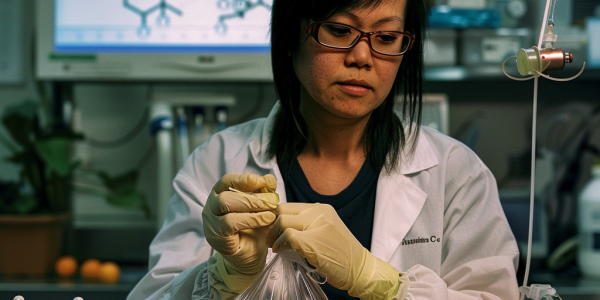University of Iowa Study Reveals High-Dose Vitamin C Doubles Survival Rates for Late-Stage Pancreatic Cancer Patients
A groundbreaking study from the University of Iowa reveals that high-dose intravenous vitamin C therapy could double survival times for late-stage pancreatic cancer patients, increasing their average survival from eight to 16 months. This promising research highlights the potential of vitamin C as a versatile treatment option in oncology, with implications for other cancer types as well.
Rising Pancreatic Cancer Cases Among Youth: A Closer Look at Overdiagnosis
Recent studies indicate a rising incidence of pancreatic cancer among younger individuals in the U.S., yet a new report reveals that most cases are diagnosed early, leading to better outcomes. This challenges the perception of a health crisis, suggesting the need for careful management and screening strategies to balance early detection with the risk of overtreatment.
Study Shows Pitavastatin Can Prevent Cancer Development in Cases of Chronic Inflammation
Discover how the drug pitavastatin can effectively prevent cancer development in cases of chronic inflammation by blocking interleukin 33 (IL-33) expression. The study reveals the role of IL-33 in cancer-prone chronic inflammation and the ability of pitavastatin to inhibit IL-33 expression through the mevalonate pathway. Learn how this research highlights the potential of statins, like pitavastatin, as a safe and effective strategy for preventing cancer-related consequences of chronic inflammation.
Chinese Scientists Make Groundbreaking Discovery in Pancreatic Cancer Treatment
Chinese scientists have discovered two protein markers that may predict chemotherapy sensitivity in pancreatic cancer, offering hope for improved survival rates. The groundbreaking study, published in Nature Medicine, could revolutionize the diagnosis and treatment of the most common subtype of pancreatic cancer, offering new hope for patients and the medical community.
Researchers Discover Enzymes that Impact Effectiveness of Chemotherapy Drug in Treating Pancreatic Cancer
University of Toronto researchers have discovered enzymes that hinder the effectiveness of gemcitabine, a common chemotherapy drug used to treat pancreatic cancer. The study, published in Nature Cancer, sheds light on the mechanisms compromising gemcitabine’s efficacy and offers potential for the development of targeted therapies to improve treatment outcomes for pancreatic cancer patients.
Diabetes Drug Shows Promise in Protecting Against Colorectal Cancer
A recent analysis by researchers in the US suggests that a drug commonly used to treat type 2 diabetes could also be effective in protecting against colorectal cancer (CRC). The drug, known as glucagon-like peptide-1 receptor agonists (GLP-1 RAs), has…






